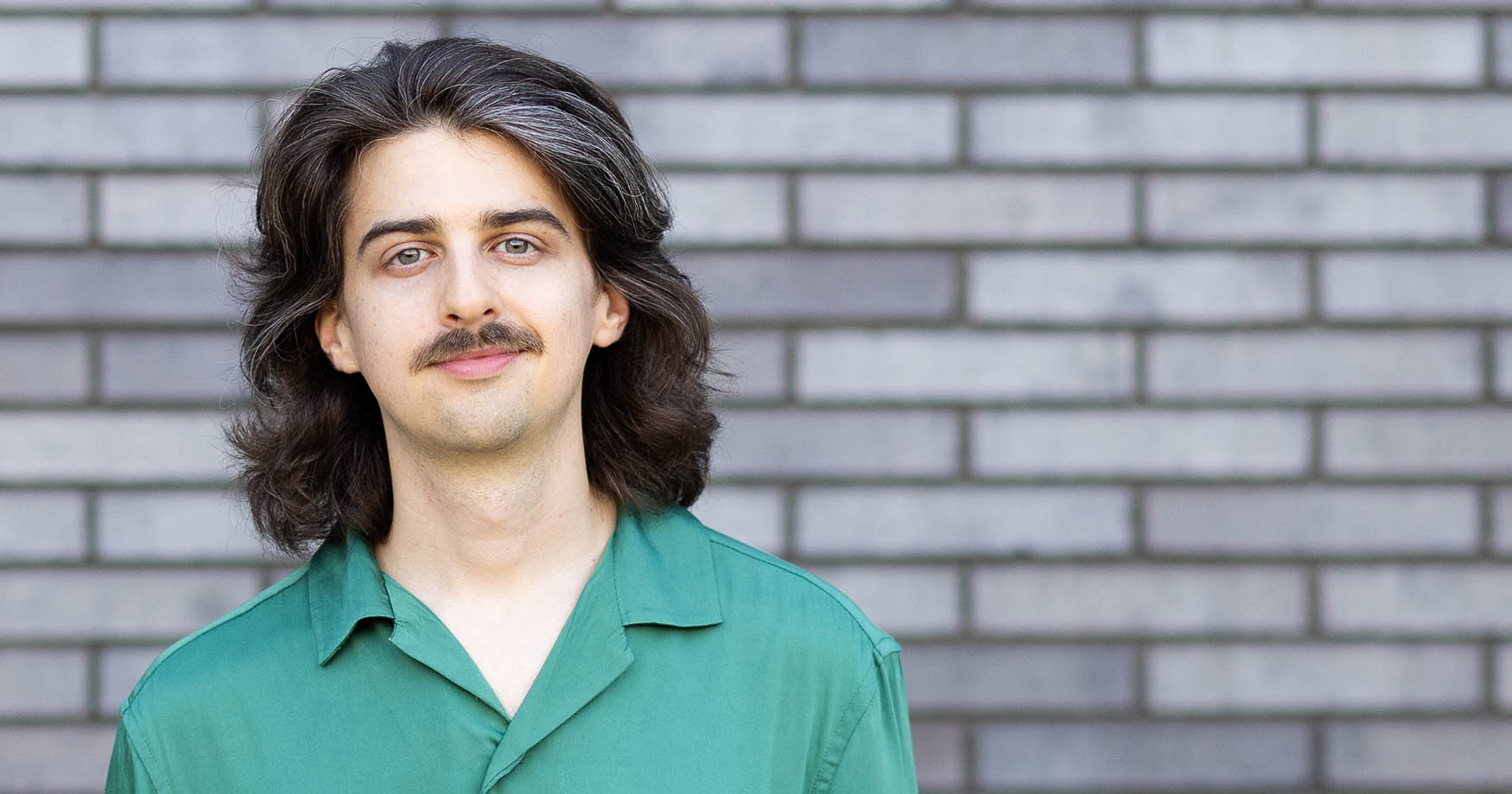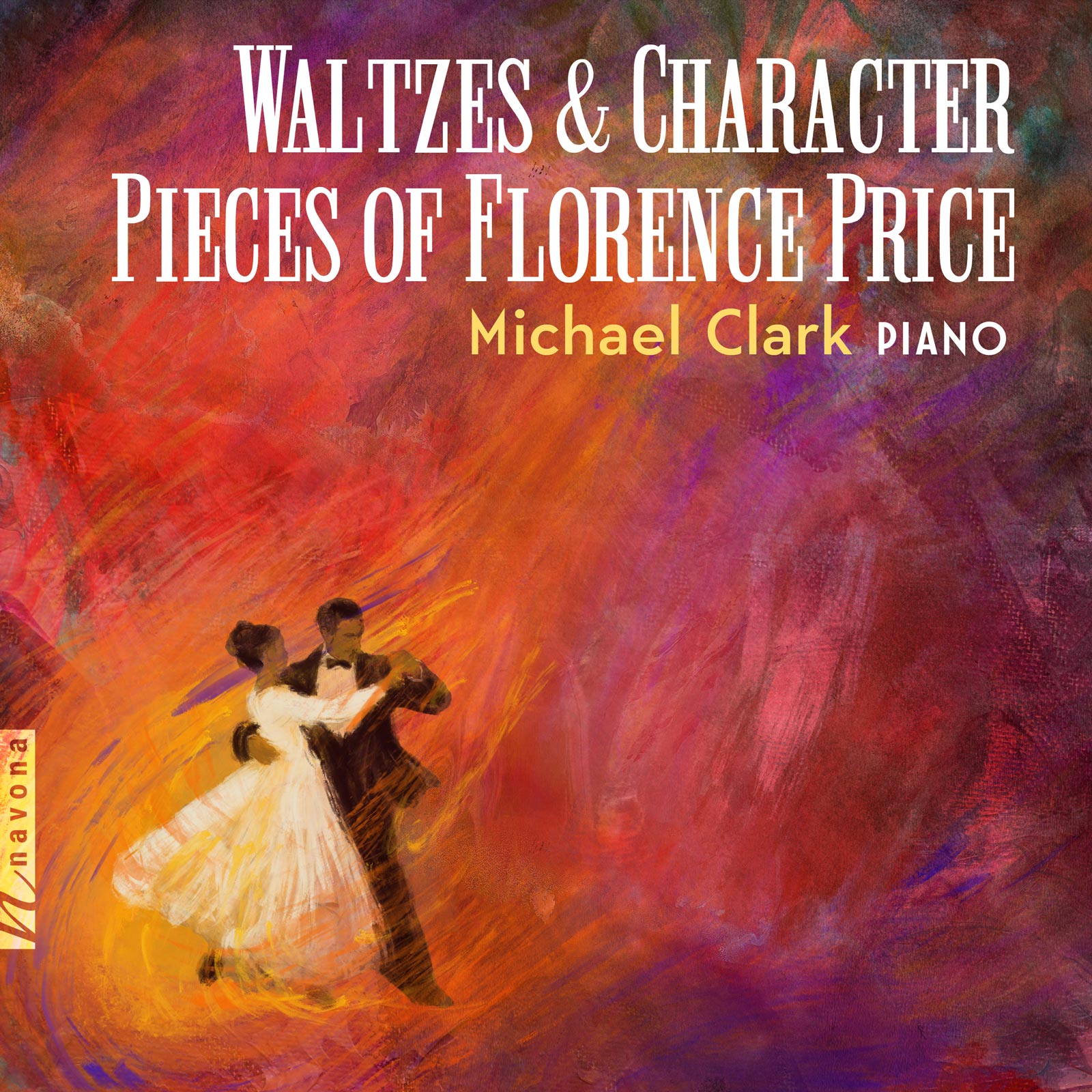
Michael Clark’s knowledge and reverence for Florence Price shines in WALTZES & CHARACTER PIECES OF FLORENCE PRICE. Clark’s respect and intimate understanding of these elegant piano works is evident in his delicate treatment of each passage down to the single note.
Today, Michael is our featured artist in the “Inside Story,” a blog series exploring the inner workings and personalities of our composers and performers. Read on to learn about his passion for cinema and the quote from RuPaul’s Drag Race that’s helped him own his artistry…
What emotions do you hope listeners will experience after hearing your work?
Above all I hope this album brings joy to listeners — and since most of the pieces are waltzes, I hope they’ll find themselves dancing along! A few tracks standout in contrast to the prevailing sunny mood: Impromptu is impetuous and keeps the listener guessing, To a White Rose offers an almost angelic serenity and stillness, and Pensive Mood projects more turbulent, unsettled emotions that range from somber to frenzied. In the bigger picture, I hope listeners will feel a sense of injustice that this beautiful music has been suppressed for so long and develop a hunger for more of Price’s music to be recorded and performed widely.
What’s the greatest performance you’ve ever seen, and what made it special?
I have been fortunate to attend many wonderful performances given by professionals and amateurs alike, but one tends to come to mind when this question is asked. During my studies at Ithaca College, two of my professors, baritone Brad Hougham and pianist Diane Birr, presented a semi-staged performance of Schubert’s Winterreise in a small recital hall. The room was packed and everyone was intently focused on the magic happening onstage. Hougham sang an entire song curled up on the ground in the fetal position! It meant a lot to see the transformation of my teachers into performers. And the music itself is so profoundly pure in its simple texture — just voice and piano, elegant melody, and transcendent harmony. It was an engrossing and intimate experience that I will never forget.
If you weren’t a musician, what would you be doing?
From the time I was very young, I was drawn to movies. I would have loved to be a filmmaker of some sort, whether as the director or cinematographer or editor. I’m very interested in the visual element of storytelling, as well as its structure. I certainly don’t have the training to jump into that now, but I’m passionate about the subject. My favorite movies from 2023 were Oppenheimer and Anatomy of a Fall.
What advice would you give to your younger self if given the chance?
There are lots of little practical things that come to mind: that I wish I’d changed certain technical habits sooner, learned to practice more efficiently, studied more concertos early on, that sort of thing. But I think my younger self could have benefited most from stronger mental preparation: positive self-talk, visualizing successful performances, avoiding comparison. Musicians are talking about these ideas more and more today, but they have been around in sports psychology for much longer. I wish I’d read Timothy Gallwey’s The Inner Game of Tennis in high school!
How have your influences changed as you grow as a musician?
When I was younger my influences were nearly all pianists. Now I listen more widely and draw inspiration from singers and other instrumentalists. Any time I collaborate with other musicians, I get fresh ideas and new sounds to strive for. I have also learned a lot from other types of onstage performers, including from watching RuPaul’s Drag Race. The drag queens on the show present dozens of runway looks and appear in diverse performance events throughout the season. The judges constantly push contestants to show more versatility while keeping their own personal stamp on their art. One RuPaul quote that has stuck with me is, “The theme of the winner’s circle is adaptability, but at the same time staying true to your own unique frequency. And that’s the truth not only in this competition but in everything in life, taking those cues from the universe and applying them but without losing who you are.” Transferring that philosophy to piano has helped me own my artistry. I don’t believe in disappearing into the music — rather, the music is a vehicle for my human expression. Even though I didn’t write the music, I live with it day in and day out, grappling with it and eventually embodying it, bringing it to life in real time for an audience. That personal investment in the performance, that authenticity, translates to listeners.
Take us on a walk through your musical library. What record gets the most plays? Are there any “deep cuts” that you particularly enjoy?
Like most musicians, my tastes are eclectic and highly personal. As they say on Twitter, “Is it really one of the greatest albums of all time or did it just come out when you were 16?” That said, here are five albums I wouldn’t want to live without and a deep cut from each:

Michael Clark is a pianist devoted to the interconnection of performance, scholarship, and pedagogy. He has appeared in 15 U.S. states as a soloist, chamber musician, and clinician, specializing in 20th and 21st century repertoire. An advocate for the music of Florence Price, Clark has presented numerous lecture recitals on her piano works and made his solo album debut with Price’s complete waltzes and selected character pieces for Navona Records.

